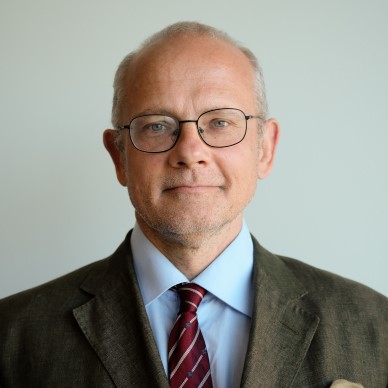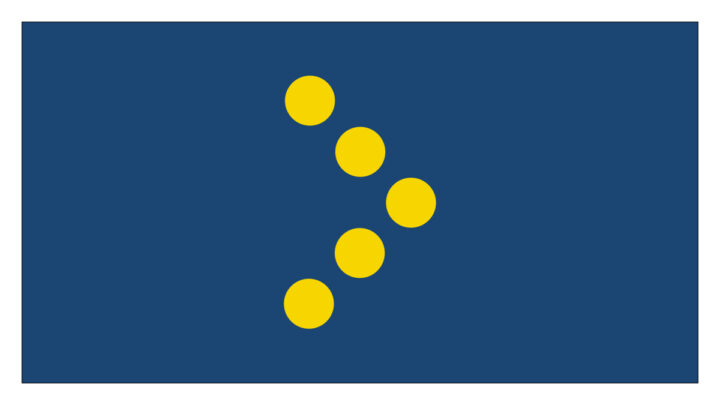SCEEUS Commentary No. 16
Executive Summary
In light of the intensifying international conflict between democracies and autocracies, the Ukraine-related “Coalition of the Willing” (CoW) formed in 2025 offers a model for more general joint action by liberal governments across the globe. It provides a blueprint – and, perhaps, even a nucleus – for future multilateral collaboration among democratic countries from different continents and with diverging cultures. Closer international teamwork and institution-building by democracies is now imperative as anti-liberal, revisionist and revanchist governments collaborate worldwide in structures such as the Shanghai Cooperation Organization and BRICS group, as well as bilaterally. At the same time, the West’s traditional European and Atlantic organizations are being hamstrung by old and new problems that limit their effectiveness in foreign and security affairs. The illiberal turn in the White House in early 2025 has partly limited the scope of NATO and the G7 as Euro-Atlantic cooperation platforms. The EU is constrained as a global actor by the requirement for consensus in its most important decision making. The rise of European radical right-wing parties with their nativist agendas has made the EU’s structural defects still more salient. Against this background, the CoW, with its 33 member states from Europe, North America, Asia and Australia, should be treated as a new example of and possible framework for liberal-democratic coalition-building across continents.
Introduction
Under its new administration, which entered office in January 2025, the United States has demonstrably turned its back on international democracy promotion, close Euro-Atlantic coordination and direct material support for Ukraine. As a result, there is increasing discussion about Europe’s new role not only in defending Ukraine, but also in dealing with autocracies and other international challenges. European NATO partners must now not only take greater responsibility for their own security, but also address other fundamental global issues – from environmental and human rights protection to political and socio-economic development – with little or no US support.
However, “Europe” is a diffuse concept when it comes to foreign, security and defence policy. Despite their close ties and geographical proximity, the European nations have different strategic cultures and geopolitical perspectives. In many European countries, the rise of radical right- and left-wing political parties has led to extreme polarization of public opinion not only on domestic issues, but partly also on foreign affairs.
The continent’s geostrategic pluralism is leading to incongruent formulations of national interests and varied views on salient cross-border and planetary issues in European capitals. Ideological divides do not just separate the EU from illiberal European states outside the Union, such as Belarus or Serbia. Europe’s current normative diversity has also led to internal disagreement about the EU's foreign policy priorities and goals.
How Can Democracies Defend Themselves?
In parallel, the challenges and risks to global democracy and freedom are only increasing. Today more than ever, the EU is needed as an aggregator, shaper and implementer of a common European foreign policy – in a similar way that the EU determines European trade policies. To fulfil this task, EU member states would have either to return to their former relative normative consensus or to adopt a new Treaty on European Union with stronger supranational powers for Brussels – or, in a best-case scenario, to do both. None of this is likely to happen in the near future.
In the absence of geostrategic agreement between EU member states and/or of a new Union treaty, other institutional solutions are needed. One way forward would be to create ad hoc foreign and security policy alliances of like-minded EU member states that join forces to pursue certain goals. The Lisbon Treaty allows for partial cooperation within the Union and thus joint action by groups of like-minded European governments. However, the consensus principle and national veto on fundamental decisions by the EU limit the potential role of the Council, Commission and External Action Service as institutional vehicles for a consolidated foreign policy of committed European democracies.
In any case, intra-European cooperation can only be effective to a limited extent. On their own, European democracies are too weak to assert themselves in global geopolitical, economic or military conflicts. For broader trans-European cooperation, a model of inter-democratic planning and coordination is currently emerging with the Ukraine-related Coalition of the Willing (CoW), which has been in preparation since the spring of 2025.
This thus far informal and loose alliance of democracies brings together 33 countries where governments largely agree on general values, national interests and foreign policy goals. NATO and the EU are also participating in the coalition’s meetings. The CoW includes also countries that are European but not EU member states, such as the United Kingdom and Norway, and countries far from Europe, such as Australia and Japan. While the CoW is currently only dealing with Ukraine, it could expand its focus to other issues important for the future of democracy across the planet.
New Cold and Hot Wars Today’s core global conflict revolves more, in Stanford professor Michael McFaul’s terms, around autocracies versus democracies and less around a “clash of civilizations”, as the late Harvard professor Samuel Huntington put it more than three decades ago. Huntington’s famous thesis does not explain the current cooperation between Christian Orthodox Russia,
Islamic fundamentalist Iran and paleo-communist North Korea in the Russian war against Christian Orthodox Ukraine. The composition of the Shanghai Cooperation Organization or the BRICS group does not correspond to Huntington’s scheme of culturally determined international collaboration and conflict. In contrast, the title of McFaul’s just released book, Autocrats vs Democrats: China, Russia, America, and the New Global Disorder, better captures the key dimension of future interstate cooperation and confrontation.
The joint effort by EU and non-EU member states to aid Ukraine within the framework of the CoW is therefore no coincidence, but symptomatic. It is part and parcel of a global redrawing of the lines of conflict resulting from growing worldwide opposition between open-access orders, on one side, and limited- or closed-access orders, on the other. This should have institutional implications for the relations between those European and non-European democracies that are interested in defending and promoting liberal values and rules.
Today, autocrats and their diplomats, as well as ideologues such as the Russian fascist Aleksandr Dugin, are engaged in establishing and expanding transcontinental state and non-state networks and alliances. Anti-liberal governments, parties and intellectuals from Asia, Europe, the Americas and Africa are increasingly supporting and coordinating with each other. For reasons of self-preservation, pro-democratic European and non-European states, parties and NGOs should do the same. Governments and civil societies in liberal democracies must build more effective and encompassing worldwide coalitions and institutions across geographical and cultural boundaries.
The G7 and NATO, as potential hubs for global inter-democratic cooperation, are currently hampered by the anti-liberal impulses, administrative amateurism and strategic confusion of the new US administration. The EU remains plagued by national contradictions between its member states and structural complications in its decision-making. Against this backdrop, the hitherto informal Ukraine-related CoW could offer a solution. Alongside other networks, the CoW can serve as an example of or even the nucleus for future general international cooperation between liberal-democratic governments and groups.
Political Conclusions and Policy Recommendations
Pro-democratic officials, journalists and intellectuals should recognize that the CoW not only has the potential to be relevant for providing ad hoc support to Ukraine in its defence against Russia. The CoW should also be discussed as an innovative showcase or/and possible framework for broad inter-democratic cooperation on other common aims. The resulting re-conceptualization of the CoW would take place within the context of the growing worldwide confrontation between democracies and autocracies, as well as increasing collaboration between authoritarian leaders and their ideologues across borders, cultures and continents. Purely European pro-democratic joint action will be insufficient, even in the (often unlikely) event of full participation by all of the EU’s member, candidate and associated states.
Governmental organs, political parties, think tanks and other national as well as international organisations of the 33 participating countries of the CoW should:
- Discuss how to further develop the CoW into a framework of generic and permanent inter-democratic cooperation, or to use it as a blueprint for the foundation of such an organisation;
- Expand the coalition into an institutionalized international association of democracies with longer-term and global aims as well as with additional members;
- Invite other democracies, not yet in the CoW, from Europe, the Americas, Africa and Asia, to join a broad multicultural alliance of democracies;
- Determine how such an association can relate, add and attach to various existing cooperation frameworks between democracies, such as NATO, the EU, Quad, the G7, Council of Europe, AUKUS, etc.



Resilience and vulnerability: Impressions from a freezing Ukraine